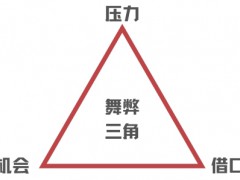世界银行(World Bank)近日在一份新报告中表示,数万亿美元被浪费在了对化石燃料、农业和渔业的补贴上,而这些补贴本可以用来应对气候变化
世界银行建议,政府对化石燃料的5770亿美元补贴可以重新定向,用于更具生产力和可持续性的解决方案
根据这份报告,各国在可再生能源和低碳发展方面补贴支出约为其承诺的6倍
据油价网2023年6月16日报道,世界银行(World Bank)近日在一份新报告中表示,将5770亿美元的政府化石燃料补贴重新定向,可以释放出至少5000亿美元的资金,用于更可持续的用途。
世界银行呼吁停止将数万亿美元浪费在农业、渔业和化石燃料补贴上,并将其用于帮助应对气候变化,而不是危害人类和地球。
世界银行的题为《脱瘾发展:重新利用对环境有害的补贴》的报告发现,政府对农业、渔业和化石燃料的直接补贴加起来每年约为1.25万亿美元——相当于墨西哥这样大型经济体的规模。
报告称,“直接或明确补贴,加上对化石燃料、农业和渔业的隐性补贴,每年超过7万亿美元,约占全球国内生产总值(GDP)的8%”。
隐性补贴——一种衡量补贴对人类和地球影响的指标——每年超过6万亿美元,负担主要落在非富裕群体身上。
世界银行表示:“为了补贴化石燃料消费,各国每年的支出大约是它们根据《巴黎协定》承诺的可再生能源和低碳发展资金的6倍。”
世界银行表示:“重新调整这些补贴的方向,至少可以释放出5000亿美元资金,用于更具生产力和可持续性的用途。”
世界银行高级常务董事Axel van Trotsenburg评论说:“人们说没有钱用于气候,但其实有——只是钱投错了地方。”
“如果我们能重新定向浪费在补贴上的数万亿美元,把它们用于更好、更环保的用途,我们就能共同应对地球上许多最紧迫的挑战。”Trotsenburg如是说。
李峻 编译自 油价网
原文如下:
World Bank Calls For Fossil Fuel Subsidies To Be Redirected
· In a new report, the World Bank says that trillions of dollars are wasted on subsidies for fossil fuels, agriculture, and fisheries that could be used to address climate change.
· The World Bank suggests $577 billion in government subsidies for fossil fuels could be redirected for more productive and sustainable solutions.
· According to the report, countries spend about six times what they pledged to spend on renewable energies and low-carbon development on fossil fuel subsidies.
Redirecting the $577 billion in government subsidies for fossil fuels could unlock at least half a trillion dollars that could be put to more sustainable uses, the World Bank said in a new report.
The bank is calling for trillions of U.S. dollars stop being wasted on subsidies for agriculture, fisheries, and fossil fuels and be used to help address climate change instead of harming people and the planet.
The World Bank’s report, Detox Development: Repurposing Environmentally Harmful Subsidies, found that direct government subsidies for agriculture, fishing, and fossil fuels combined are around $1.25 trillion a year—around the size of a big economy such as Mexico.
Direct, or explicit subsidies, combined with implicit subsidies for fossil fuels, agriculture, and fisheries, exceed $7 trillion annually, which is around 8% of global gross domestic product (GDP), according to the report.
Implicit subsidies – a measure of the subsidies’ impact on people and the planet - amount to over $6 trillion a year and the burden fall mostly on the poor.
“To subsidize fossil fuel consumption, countries spend about six times what they pledged to mobilize annually under the Paris Agreement for renewable energies and low-carbon development,” the World Bank said.
“Redirecting these subsidies could unlock at least half a trillion dollars towards more productive and sustainable uses,” the bank says.
Axel van Trotsenburg, Senior Managing Director of the World Bank, commented, “People say that there isn’t money for climate but there is – it’s just in the wrong places.”
“If we could repurpose the trillions of dollars being spent on wasteful subsidies and put these to better, greener uses, we could together address many of the planet’s most pressing challenges.”
免责声明:本网转载自其它媒体的文章及图片,目的在于弘扬石化精神,传递更多石化信息,宣传国家石化产业政策,展示国家石化产业形象,参与国际石化产业舆论竞争,提高国际石化产业话语权,并不代表本网赞同其观点和对其真实性负责,在此我们谨向原作者和原媒体致以崇高敬意。如果您认为本站文章及图片侵犯了您的版权,请与我们联系,我们将第一时间删除。







